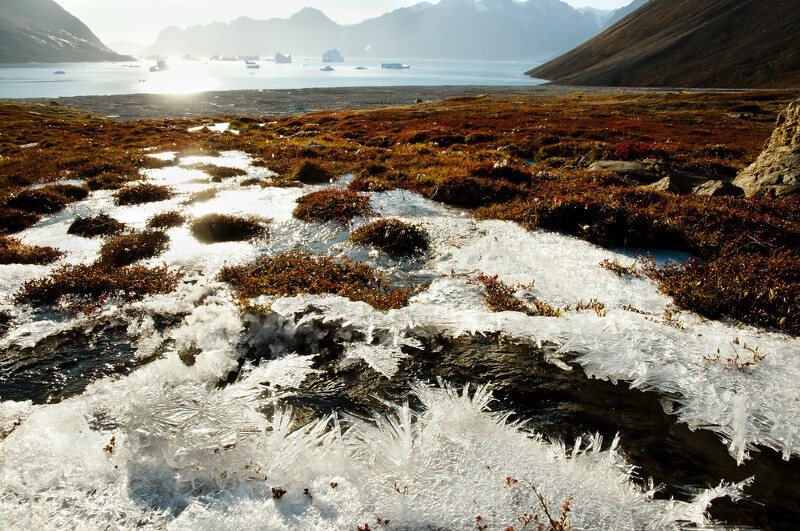I visited Greenland because, lately, the land here has gone soft, and disquieting things threaten to wake in it.
…
What biologists call the permafrost’s “active layer”—the part of the dirt where microbes and other forms of life can live—now reaches farther underground, and further north, than it has for tens of thousands of years. The newly active permafrost is packed with old stuff: dead plants, dead animals, mosses buried and reburied by dust and snow. This matter, long protected from decomposition by the cold, is finally rotting, and releasing gases into the atmosphere that could quicken the rate of global warming.
This matter is also full of pathogens: bacteria and viruses long immobilized by the frost. Many of these pathogens may be able to survive a gentle thaw—and if they do, researchers warn, they could reinfect humanity.
…
Some of the microbes lurking in the permafrost may be familiar: adversaries that humanity already knows and believes it has defeated. The World Health Organization brags that it has eradicated smallpox, for instance—other than the stores in the United States and Russia—but [microbiologist Jean-Michel] Claverie warns that it could well have survived in the tundra.
Even more worrisome are the microbes we don’t know. “No one really understands why Neanderthals went extinct,” Claverie said.
The GLP aggregated and excerpted this blog/article to reflect the diversity of news, opinion, and analysis. Read full, original post: The Zombie Diseases of Climate Change































